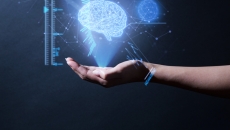AI
As populations will need to increasingly rely on self-care models during the pandemic, experts reflect on the key ways this will transform the landscape of healthcare delivery and innovation in 2021 and beyond.
Trained and tested on roughly 100,000 RT-PCR records collected by the Israeli Ministry of Health, the algorithm looks at eight different features, including self-reported symptoms and age, to make its predictions.
The tool was "100% accurate" when spotting cases among asymptomatic individuals, the researchers wrote, and could be deployed as a low-cost prescreener to support diagnostic testing efforts.
The funding was led by ETF and an investor consortium from across AI, science and analytics.
Quantib and Ezra's automated tools support diagnosis and measurement of the prostate and prostate lesions, while Aidoc's algorithm acts as an always-on catch net for unsuspected blockage of pulmonary arteries.
Dr. Liz Kwo breaks down the data and technology-enabled healthcare tools being adopted by next-generation payers and providers.
A recent review of Medicare claims suggests a machine learning algorithm could flag individuals at higher risk of infection or help prevent outbreaks within skilled nursing facilities.
The company's complete blood count analyzer uses artificial intelligence to quickly measure biomarkers from a fingerstick or venous sample.
The AI medical software solution reportedly identifies abnormalities in body fluids and tissues, and is currently able to diagnose eight diseases, including rare genetic disorders.
Dr. Ran Balicer, chief innovation officer of Israel’s Clalit Research Institute, talks using tech to catch health issues before they become serious at HIMSS20 Digital.

